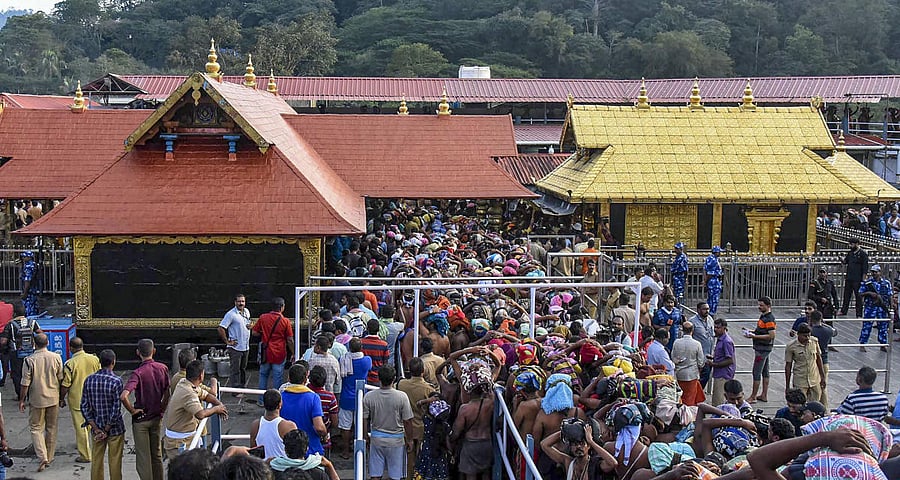
The Supreme Court on Thursday said it was "a little disappointed” as the counsel could not arrive at a consensus on issues to be determined by a nine-judge bench with regard to rights of women from different faiths to enter places of worship, in the wake of post-Sabarimala judgement on November 14, 2019.
Chief Justice of India S A Bobde, presiding over a three-judge bench, said the court would itself frame issues. On Monday, the bench would pass orders on case management, fixing timelines and other modalities for the crucial matter.
Senior advocates A M Singhvi, Arvind Datar, V Giri and Indira Jaising and Solicitor General Tushar Mehta were present during the mentioning in the afternoon.
Earlier in the morning, a counsel, appearing for Indian Young Lawyers Association, the lead petitioner in Sabarimala case, asked the court to modify the cause title of the reference case. He said though in November order, the apex court said the review petitions would be decided in light of the decision by the larger bench, all the petitions were listed on the previous date of hearing. The court asked him to contact the registry for the purpose.
On January 28, the court had said it would not grant more than 10 days time to finish arguments on the issues, arising out of Sabarimala case judgement.
On review petitions against the 2018 Sabarimala judgement allowing all age women to enter the Lord Ayappa shrine in Kerala, a five-judge had on November 14, 2019, said similar pending questions related to Muslim women's right to enter 'dargah' and mosque, and permission to Parsi women, married to a non-Parsi, into the holy fireplace of an 'Agyari' and practice of female genital mutilation among Dawoodi Bohar community would require authoritative determinations.
Practice of Santhara among Jain community and rights of Shwetambar Jain community women were also raised during the hearing.

